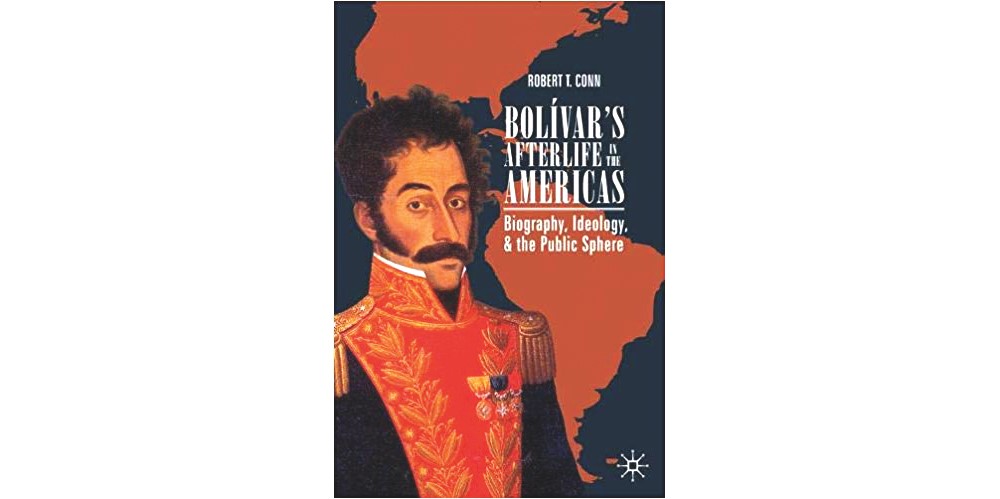This article is adapted from AQ’s special report on Latin America’s armed forces.
It is impossible to visit South America without encountering Simón Bolívar. The “great liberator” is everywhere: gazing down from statues, declaring his name from road signs, taking to the pitch on soccer players’ shirts.
Such ubiquity is historically curious and, given its great-man-of-history feel, politically problematic. As the first president of Gran Colombia, Bolívar enjoyed huge prominence in his day, but did not liberate South America alone. What of José de San Martín, Manuel Belgrano, Antonio José de Sucre and Ramón Castilla? True, they are remembered, but as national — not continental — greats.
Bolívar’s posthumous reputation extends far beyond his native Venezuela, stretching right across South America and even to the shores of Europe and the United States. As remarkable as its reach is its duration (and durability). Not a decade has passed since Bolívar’s death in 1830 without a new biography or historical criticism appearing.
Bolívar’s fullest and most recent apotheosis occurred under Venezuela’s former President Hugo Chávez. But the lasting appeal of South America’s favorite son (the term “cult” is used to describe the phenomenon in Venezuela) is all the stranger when one considers Bolívar’s concrete achievements. While he boasts an admirable military reputation for his ousting of the Spanish, his record is tarnished by atrocities against Spanish-born civilians under his infamous Decree of War to the Death. Politically, his legacy is more contested still. At the time of his death, Bolívar struck a forlorn figure: recently deposed from power, heading into exile, his dream for political unity all but dashed. (Gran Colombia would be dissolved within months).
So why has Bolívar so often been placed at the apex of South American history? In his exhaustive new account, Bolívar’s Afterlife in the Americas: Biography, Ideology & the Public Sphere, Robert Conn posits two main answers. The first, and most obvious, relates to the sheer abundance of the man. Bolívar lived life to the full. Into his hectic 47 years, he crammed love affairs and trysts, battles and diplomacy, defeats and victories, exile and rulership.
Most impressive of all was his prodigious literary output. A voracious reader (even in wartime, he always traveled with a trunkload of books), Bolívar has left historians with a plethora of his own paperwork to paw through. Scholarly attention has focused on his major public texts: the Cartagena Manifesto, the Jamaica Letter, the Angostura Address, and the Bolivian Constitution.
But his letters, diaries and other written paraphernalia also offer rich insights into Bolívar the man.
The fullness of Bolívar’s life easily plays to the romantic image of the swashbuckling national hero. Who wants a staid, serious San Martín for a founder when you can have the poetic-minded, sword-brandishing lothario, Bolívar? Moreover, Bolívar’s writings espoused progressive Enlightenment ideas that continue to speak powerfully decades later. His actions may not have always lived up to his ideals, but this is to miss the point. What counts is the utopian ideal that Bolívar has provided to successive generations of statesmen and nation-builders.
Conn’s second point is less expected. Bolívar’s legacy, he argues, has precious little to do with Bolívar himself. Instead, the great liberator should be understood as a paradigmatic totem, a malleable everyman to be taken up by the political actors of their day and used (and abused) as they see fit. Friends or foes, Bolívar’s interpreters through the ages — Pablo Neruda, José Martí, Gerhard Masur, even Gabriel García Márquez — all had their own axes to grind. The complex and often contradictory figure of Bolívar proved the perfect anvil on which to sharpen their discursive blades.
With these arguments in mind, Conn devotes much of the first half of Bolívar’s Afterlife in the Americas to a single corner of the hemisphere: Venezuela. If Bolívar is South America’s favorite son, he is Venezuela’s guiding deity. Conn follows Bolívar’s ever-changing legacy, from the early hagiographic narratives of Felipe Larrazábal and the modernist critiques of turn-of-the-century writer Rufino Blanco Fombona, through the early 20th century (notably via the republican-minded Bolivarian Society founder, Vicente Lecuna). His tale ends with the fascinating account of the New Intellectuals — men such as Mariano Picón Salas, Germán Carrera Damas and Luis Castro Leiva — who drew on the cultural and historical models of their time to attempt an interpretative history of Bolívar that would correct what they saw as previous “folkloric” accounts.
History is never written in isolation from its times. This is Conn’s overriding message. In describing the multiple revisions to Bolívar’s legacy, he provides a fascinating intellectual and political history of the Americas. His chosen commentators — some well-known to history, others less so — reveal more about themselves and their times than they ever do of Bolívar. This role of historical biography as a mirror to the present comes across equally powerfully in the second half of the book. Here, Conn forensically traces the historiographical footprints of Bolívar’s ghost through U.S. hemispheric policy, military and diplomatic relations in Mexico, Latin American regionalism in Peru, and so on.
Bolívar’s Afterlife in the Americas offers a rewarding and erudite overview of the political narratives that have framed politics in the region since liberation. It also serves as a warning: Read historical biographies with care. National heroes are never as simple — or, sometimes, as heroic — as they seem.
—
Balch is author of Viva South America! A Journey through a Changing Continent (Faber and Faber)








